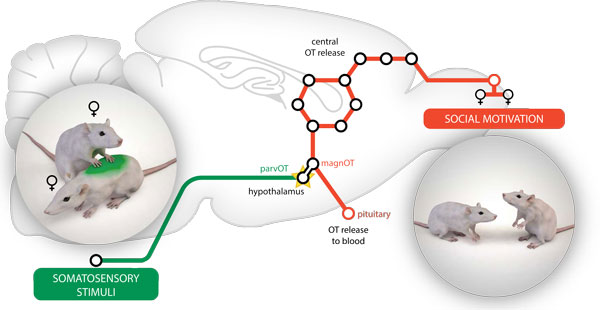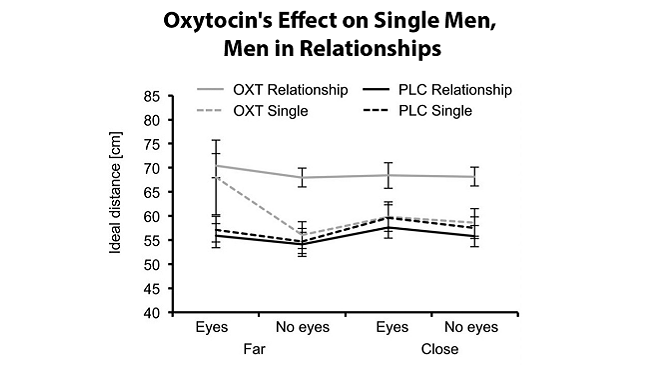touch deprivation badly impacted my life
Table of Contents
Table of Contents
Have you ever heard of the “love hormone”? Also known as Oxytocin, it’s a powerful chemical produced naturally in the brain that plays a key role in human bonding and social relationships. But did you know that touch deprivation in parent-child connections can have a significant impact on the production of Oxytocin and ultimately, the quality of their relationship?
Oxytocin and Touch Deprivation in Parent-Child Connections
Many parents are unaware of the importance of touch in maintaining a healthy relationship with their child. It’s not just about physical closeness or showing affection; research suggests that touch deprivation can lead to emotional, psychological, and behavioral problems for children.
Touch triggers the release of Oxytocin in both parent and child, promoting a sense of security and comfort that can lead to better communication, trust, and empathy. Without regular contact, children may struggle to develop a healthy attachment to their parents and may be more prone to mental health issues in the future.
The Importance of Oxytocin and Touch in Parent-Child Connections
The benefits of touch and Oxytocin production in parent-child relationships are significant. Studies have shown that children who experience regular physical touch, such as hugging or holding hands with their parents, are more likely to have positive self-esteem, better social skills, and stronger cognitive development.
On the other hand, touch deprivation in parent-child connections can lead to stress, anxiety, and depression in both parent and child. It can also negatively impact a child’s ability to form relationships in the future, leading to social isolation and difficulties in maintaining lasting connections.
The Role of Oxytocin and Touch in Early Childhood Development
Early childhood is a crucial time for parent-child bonding, and touch plays a significant role in this process. Regular physical contact can help infants regulate their emotions and feel more secure in stressful situations.
Studies have also shown that skin-to-skin contact between parents and newborns can improve breastfeeding success rates and help premature babies thrive. This highlights the importance of touch in promoting healthy development from infancy and beyond.
Tips for Parents to Foster Healthy Touch in Parent-Child Connections
Parents can take simple steps to nurture healthy touch in their relationships with their children. Here are a few ideas to get started:
- Schedule regular cuddle time or hugs
- Incorporate touch into daily routines, such as bath time or story time
- Encourage physical play, such as tickling or roughhousing (within limits)
- Be present and engaged during moments of physical contact, keeping distractions like phones or TV to a minimum
Conclusion of Oxytocin and Touch Deprivation in Parent-Child Connections
Oxytocin and touch play a crucial role in parent-child bonding, yet touch deprivation can have lasting negative effects on a child’s emotional, psychological, and behavioral health. It’s important for parents to prioritize healthy touch in their relationships with their children and foster a secure, loving connection that will benefit the child for years to come.
Question and Answer
What happens to a child when they experience touch deprivation?
Touch deprivation can lead to emotional, psychological, and behavioral problems for children, such as stress, anxiety, and depression. It can also negatively impact a child’s ability to form relationships in the future, leading to social isolation and difficulties in maintaining lasting connections.
How can regular physical touch benefit a child’s development?
Regular physical touch, such as hugging or holding hands with their parents, can improve a child’s self-esteem, social skills, and cognitive development. It can also help infants regulate their emotions and feel more secure in stressful situations.
What are some tips for parents to foster healthy touch in parent-child connections?
Parents can incorporate touch into daily routines, schedule regular cuddle time or hugs, encourage physical play, and be present and engaged during moments of physical contact, keeping distractions like phones or TV to a minimum.
How can touch deprivation impact a child’s ability to form lasting relationships?
Touch deprivation can lead to difficulties in forming relationships later in life, as a child may struggle to form healthy attachments and may be more prone to social isolation and relationship issues.
Gallery
How The ’love Hormone’ Makes A Mother | Daily Mail Online

Photo Credit by: bing.com / oxytocin hormone baby men looking mother cuddle babies beautiful parents their attractive makes posts brain social mothers feminism modern study
Social Touch Promotes Communication Via Oxytocin | Human Frontier

Photo Credit by: bing.com / oxytocin promotes
“Touch Deprivation Badly Impacted My Life”

Photo Credit by: bing.com / deprivation touch badly impacted life
Oxytocin During Pregnancy | Oxytocin Injection During Pregnancy

Photo Credit by: bing.com / oxytocin pregnancy
Oxytocin - The Science, Benefits And Ways To Boost It In Kids Page 1 Of 0

Photo Credit by: bing.com / oxytocin



